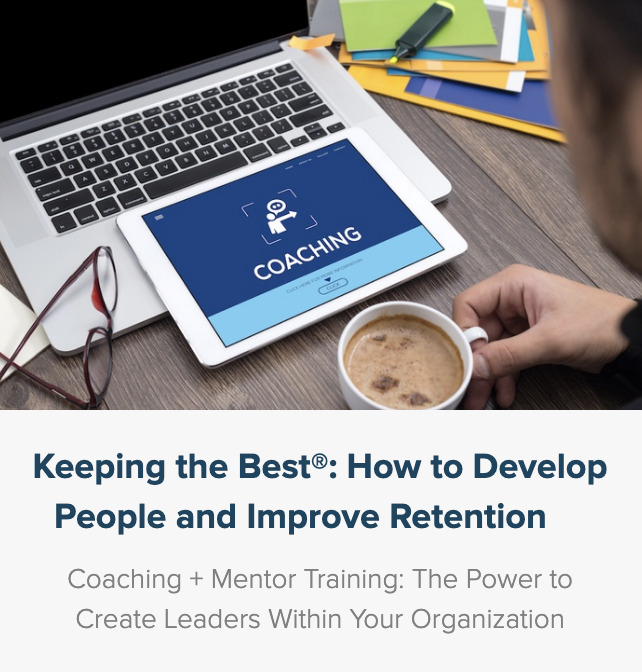- Unfortunately, the trial by fire mentality is pervasive in pre-hospital care - wanting to ensure people are tough enough for EMS - Kindness seen as weak. Is that how you want your people treating your patients in the community?
- That’s how I was trained (i.e. it was good enough for me) - don’t realize a thriving organization leads to people staying
- Fear someone isn’t going to make it, investing in someone who only leaves
Check out the article: How to prevent the dreaded “Fizzle Out” Syndrome on our website and make sure you’re on our email list for the latest articles, videos, and training. Have a conversation with your existing trainers & leaders and draw a line in the sand, while it may have been acceptable before, it’s not acceptable to treat anyone like that again. We are creating a supportive environment that builds them up.
Welcome everyone to today's EMS leadership, Q & A. And we have an interesting question here. Why do EMS providers eat their young? Why I'm guessing somebody asked me, why are they so mean and abusive towards some of their newest people? Yeah. And then they wonder why a recruitment and retention is a problem, right? Unfortunately, the trial by fire sort of mentality is just pervasive in prehospital care.
You know, I think it's, it's wanting to ensure that people are tough enough for EMS. Unfortunately, kindness is seen as weak and vulnerable, you know, and, and the question, you know, you wouldn't want people treating your patients in the community or, or the people who are funding you, or, you know, anyone involved in your organization on the outside.
You wouldn't want to treat them that way, but somehow it's seen as okay. To treat especially new people that way. And it's that, you know, well, that's how I was trained. You know, that's how I was brought up. If it's good enough for me, it's, you know, it's good enough, even though your own experience of it was terrible and you hated it somehow again,
this feeling of it's okay to do. And I think people don't realize that it's a thriving organization where people feel connected, where people feel cared for and appreciated is what leads to people staying and, and thoroughly being committed to the organization. And I do think that people are afraid of investing in someone who only leaves, but they don't see the connection between being mean or abusive or,
or even super tough on people as a connection to why people leave. Because if people are bringing them their best self to an organization, and then they get treated terribly, why would they stay? I mean, you don't go to a restaurant where the service is terrible. You don't go to a store and where the service is terrible over and over and over again,
you stop going there. So I think it's really important for people to see that being kind and, and caring is, is really the best way to take care of people and have them be loyal. And I think it, it's a great action that can be taken is really have a conversation with your existing trainers, your field training officers and the leadership team in your organization.
Draw a line in the sand, say that this may have been acceptable before, but this is not acceptable anymore. We're not going to treat anyone like that. Again, we're not going to tolerate any of that. And we're creating a supportive environment that builds people up a winning team that people want to be a part of, right? Who doesn't want to be part of the winning team.
I think there's a great article. We're going to link below here called how to prevent the dreaded fizzle out syndrome. And there's plenty of resources on our website. Make sure you're on our email list for just the latest articles and videos and trainings that we post. But it's a great article to a follow up to this video. Thanks everyone for watching.




I was just discussing this with a friend who is a top level manager but not in the EMS field…
Paramedics are “trained” early in their careers to develop a robust (read as “slightly overexaggerated”) sense of self-confidence. This is absolutely needed on emergency scenes, where a moments hesitation or questioning leads to panic in others. Medics, especially experienced medics, come to see their education and experience as “good enough”, and challenge those who come behind to meet the same expectations when starting, not realizing the level of experience they’re usin as an edge. Medics and EMTs who do not seek further education and training, who stay within one system (especially larger service systems) or have built a large level of experience over time- come to believe they’ve seen it all. There is also the ‘exposure’ factor: they’ve seen others make mistakes (physicians, nurses, other medics) and because they’re not fully cognizant of their own short-comings, they believe they’re just as good (familiarity breeds contempt). All of this leads to an over-reliance on self, and a belief that the system is understood.
This I think, is what leads to the ever-growing nurse/medic divide and one of the roadblocks to promoting non-clinical education to the EMS workforce. A lack of robust continuing education (not rehashing the same information every two years), a lack of developmental education (both clinical and practical, career stagnation and a lack of exposure to a wider patient population leads to the belief that they’re the top of the food chain and everyone, especially “new” EMTs and Medics, need to “learn the system”.
How to avoid this or prevent it? Build better systems.
Make people learn new skills, develop new ideas and work with new people. Encourage personal and professional development. Grow local; but give them room to fly and keep feeding the ones that stay. Promote from within whenever possible.
Leaders should take the time to mentor and explain decision making processes in a way that others can explain it again. Managers should make decisions that are clear and easily understood- and if they aren’t; explain how those decisions were arrived at.
More information, makes for better decision making later. More experience leads to more sharing of lessons learned. Finally, more exposure leads to an ever-learning mindset.